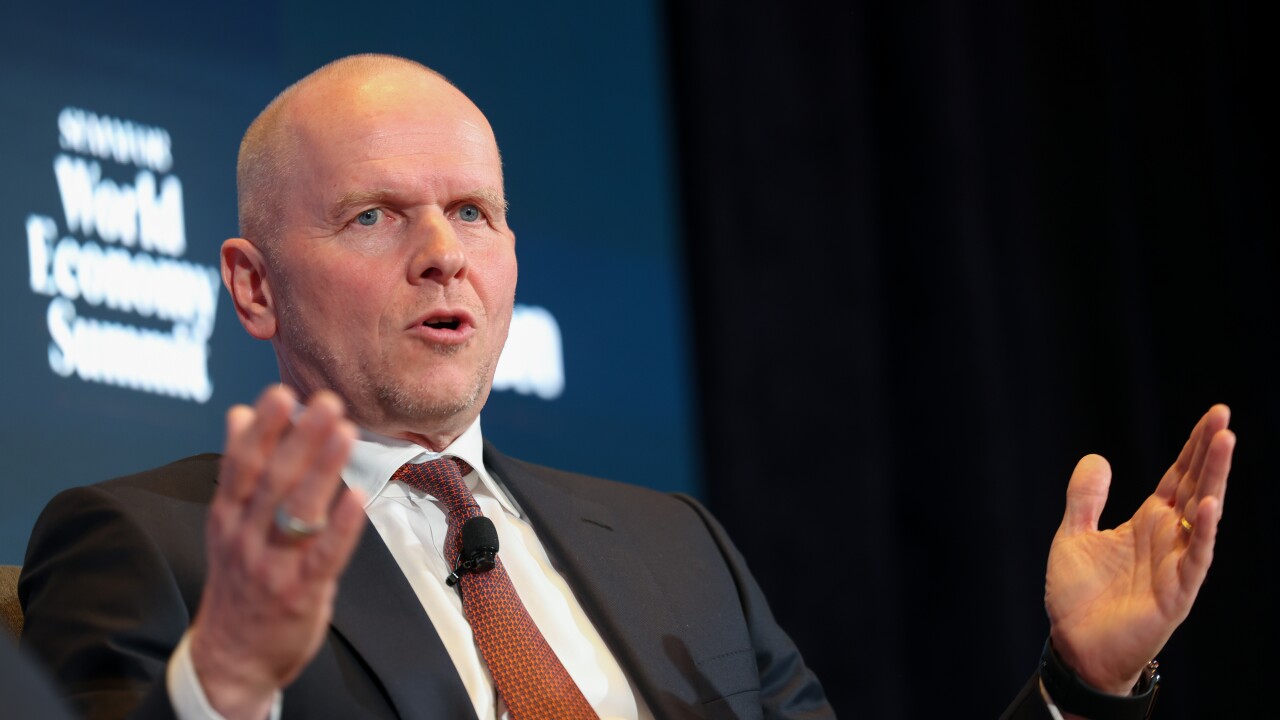-
Lending Club stayed on its fast-growth trajectory in the first quarter, as loan originations and operating revenue more than doubled from the same period a year earlier.
May 5 -
The high-flying sector is primed for a correction, industry leaders said this week. Declining credit standards are one of the top concerns.
April 16 -
Whether the startup's pricey valuation makes sense depends on whether you view it primarily as a tech firm or a financial company. And the answer to that question has big implications for the broader financial services world.
December 10

Marketplace lenders are still enjoying spectacular growth, but tough questions are starting to emerge about how much money these burgeoning firms will have to spend to continue boosting their loan volumes.
Companies such as Lending Club, which makes personal loans to consumers as well as small-business loans, and OnDeck, which specializes in small-business financing, are awash in capital from investors who have been drawn to the sector's comparatively high loan yields.
To find enough borrowers, marketplace lenders have traditionally relied on direct mail, loan brokers and online marketing, among other customer-acquisition channels. But stiffer competition in the sector is putting upward pressure on the cost of acquiring new customers. In turn, the loan platforms are searching for cheaper ways to expand their lending pipelines.
Some observers are skeptical that they will succeed. "Customer-acquisition costs are going to trend higher over time," predicted Michael Tarkan, an analyst at Compass Point Research & Trading.
Already, the stepped-up competition for new customers is proving to be a boon for lead-generation sites, which get paid for referring borrowers to the marketplace-loan platforms.
"They want to lend money, and they're willing to pay us to help find customers," said Doug Lebda, chief executive officer of Lending Tree, a lead-generation site.
During an earnings call last week, Lebda said that companies making personal loans "have seven to 10 times more money to lend than they can actually lend."
Banks that compete with marketplace lenders are also citing customer-acquisition costs as an issue that could trip up the nascent industry.
[Coming this November:
Carlos Minetti, president of consumer banking at Discover Financial Services, which competes with Lending Club and other online platforms in the personal loan business, said that the upstart challengers are increasing their spending on marketing.
"I think at some point they're going to have to become more financially disciplined and pay attention to their acquisition costs," Minetti said Tuesday in remarks to analysts.
The worries about costs help explain why marketplace lenders have announced so many new partnerships built around customer referrals in recent months.
Typically in these deals, the loan platforms pay a referral fee to their referring partners. But executives at Lending Club and OnDeck, the first two publicly traded marketplace lenders, suggested during earnings calls this week that these partnerships offer a cheaper way to acquire customers than other methods.
"We believe partnerships help for acquisition-cost concerns," Renaud Laplanche, Lending Club's chief executive officer, said during an earnings call Tuesday.
Since January, San Francisco-based Lending Club has announced a wide-ranging list of referral partnerships. Those include deals with Citigroup, Google, the Chinese e-commerce giant Alibaba, a consortium of community banks called BancAlliance, the home-improvement website HomeAdvisor, and Sam's Club, the Walmart-owned retail chain.
New York-based OnDeck has rolled out its own array of customer-referral partnerships. The small-business lender is teaming up with Prosper, which competes head to head with Lending Club in the consumer loan market, to refer prospective borrowers to each other. It is also partnering with the consumer review website Angie's List to offer financing to small businesses that are listed on that site.
OnDeck is also turning to mass media as a strategy for acquiring new small-business borrowers.
The company recently announced a deal with Minor League Baseball, which will include TV advertising. In announcing the partnership, OnDeck cited market research that found people who attend minor-league baseball games are 22% more likely than the national average to be small-business owners. Financial terms of the deal were not disclosed.
In the first quarter, OnDeck's spending on sales and marketing rose by 99% from the same period a year earlier, while its loan originations rose by 88%. During its first-quarter earnings call, OnDeck faced repeated questions from analysts about the impact that newer online platforms also specializing in small-business loans have had on its business.
OnDeck CEO Noah Breslow acknowledged the entrance of new competitors, but argued that his company holds the upper hand. "I think the key point is that none of these folks have gained scale at this point in the market, or gained real traction from what we can see," he said.
Some analysts were unconvinced. "We're seeing a company that doesn't have the obvious size advantages that, say, Lending Club seems to have vis-a-vis its competitors," said Henry Coffey, an analyst at Sterne Agee. "And we're not convinced that they'll get it."
At Lending Club, sales and marketing expenses rose by 69%, compared with a year earlier, while loan originations rose by 107% over the same 12-month period.
The company's chief executive officer, Renaud Laplanche, said that the firm is spending more efficiently on marketing than its competitors are. "I think there is a combination of brand credibility, of efficiency of marketing channels, of operating efficiency, that helps," he said.




